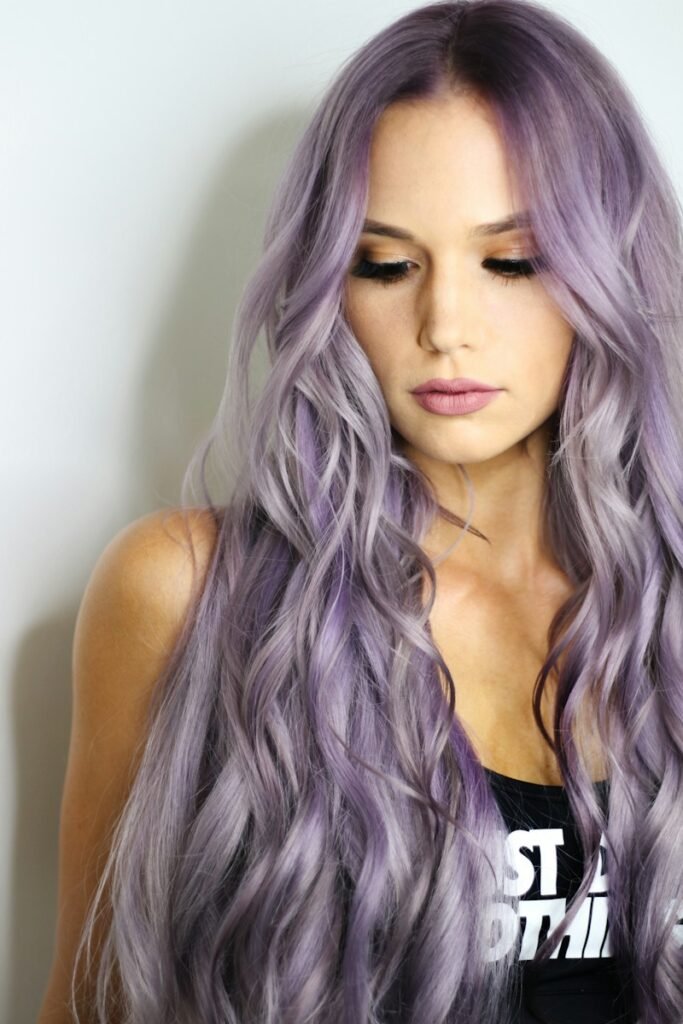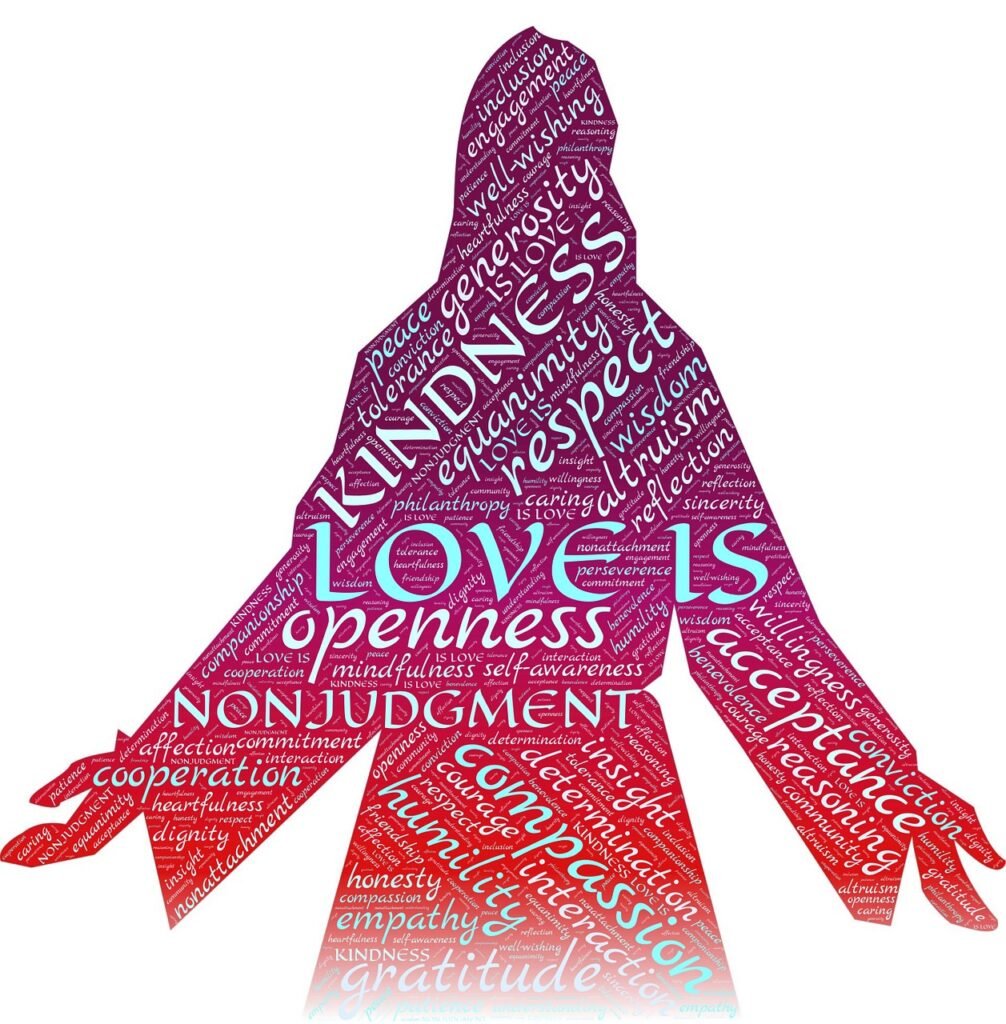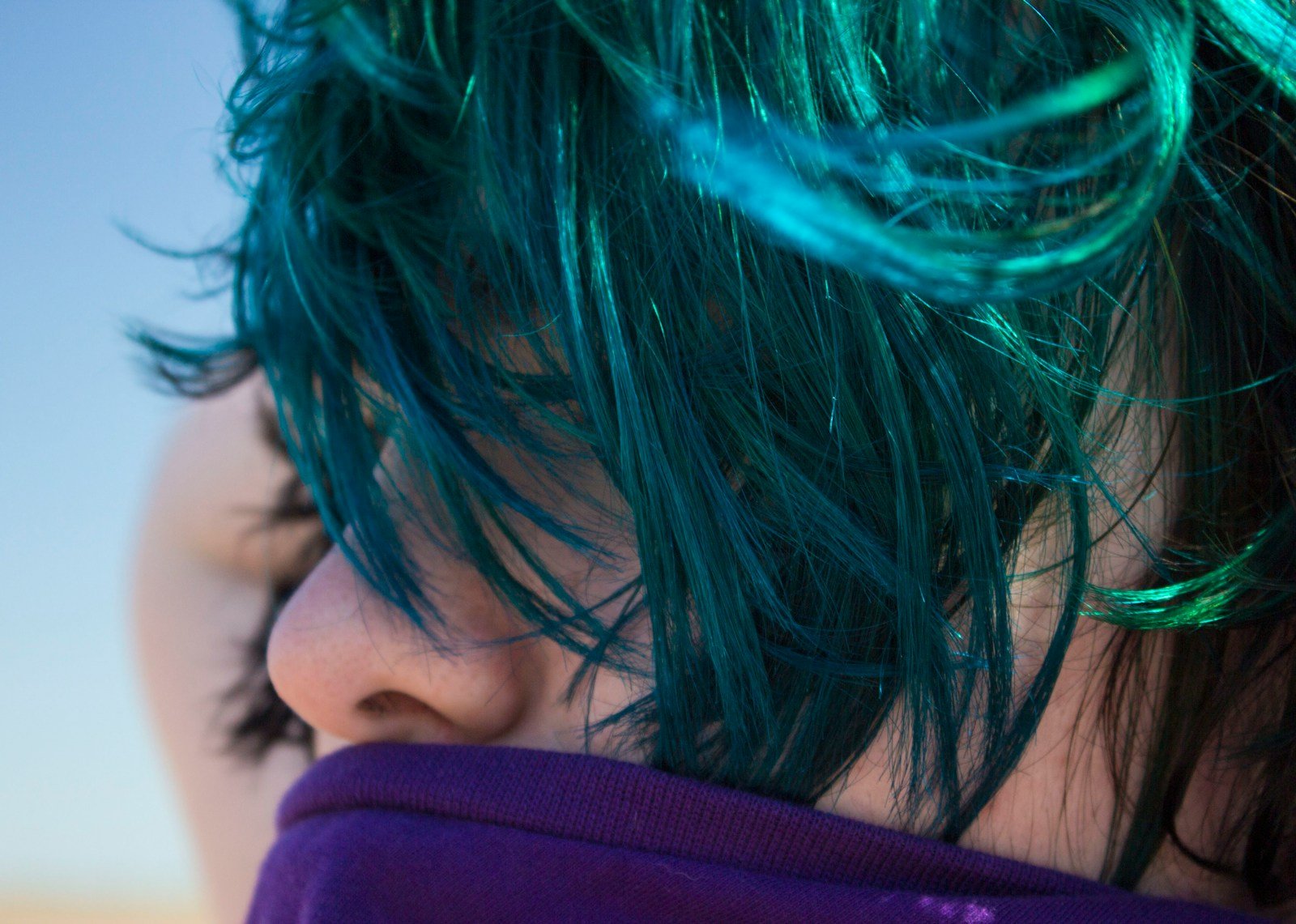Have you ever wondered if Christians are allowed to dye their hair? Hair coloring has become a popular trend in recent years, but many still wonder if it aligns with their religious beliefs.
In this article, we will explore the question of whether Christians can dye their hair. We will look at different perspectives on the topic, examine biblical references, and discuss the religious implications of hair dyeing. Through this exploration, we hope to provide readers with a deeper understanding of the complex relationship between Christian faith and hair dyeing.
Key Takeaways:
- Christians have varying beliefs about hair coloring
- The Bible does not explicitly address hair dyeing
- Some Christians view hair dyeing as a personal expression
- Religious restrictions on hair dyeing exist within certain denominations
- Ultimately, personal conviction and spiritual growth should guide decisions about hair color
Table of Contents
Christian Beliefs About Hair Coloring
Christian beliefs on hair coloring vary among different denominations. Some view it as a personal expression, while others interpret it as a violation of religious customs. In general, there is no specific biblical text prohibiting hair dye, but various religious views exist.
| Denomination | View on Hair Dyeing |
|---|---|
| Catholicism | Allows hair dyeing as long as it does not become a distraction from spiritual growth and inner values. |
| Orthodox Christianity | Prohibits hair dyeing for women wearing head coverings, as they should not draw attention to their appearance. |
| Evangelical Christianity | Does not condemn hair dyeing but emphasizes the importance of modesty and godliness. |
While there are varying views on hair coloring, most Christian denominations agree that inner qualities and character are more important than physical appearance. Thus, Christians may have differing opinions on hair coloring, but the quality of one’s heart and soul should remain paramount.
“For the Lord sees not as man sees: man looks on the outward appearance, but the Lord looks on the heart.” – 1 Samuel 16:7
Biblical Interpretations on Hair Dyeing
Many Christians wonder if dying their hair goes against biblical teachings. While the Bible doesn’t directly mention hair dyeing, some interpret certain verses as prohibiting the practice. One such passage is:
“Does not even nature itself teach you that if a man has long hair, it is a dishonor to him, but if a woman has long hair, it is a glory to her? For her hair is given to her for a covering” (1 Corinthians 11:14-15).
Some argue that this passage suggests that changing one’s natural hair color is a form of immodesty or disrespect to God’s design. Others interpret it to mean that long hair is a more significant issue than hair coloring.
However, not all biblical interpretations align with this belief. Some Christians point to the story of Samson, who was instructed to keep his hair uncut and uncolored as a sign of his devotion to God. Additionally, some argue that hair dyeing falls under the category of personal preference and does not inherently conflict with God’s will.
Ultimately, the interpretation of biblical passages on hair dyeing is subjective and varies among different Christian denominations and individuals. It is up to each person to prayerfully consider their beliefs and convictions regarding hair dyeing in light of their faith.
The Christian Perspective on Hair Dye
For Christians, the importance of inner character over external appearance is a cornerstone of faith. However, many Christians desire to express their individuality and creativity through hair dye. Can Christians change hair color without compromising their beliefs?
The answer is not straightforward. While the Bible does not explicitly forbid hair dyeing, some Christians view it as an unnecessary or even sinful practice. Others cite the belief that God created everyone uniquely and, therefore, allowing for personal expression through hair color.
Some Christians advocate for moderation, suggesting that natural or subtle hair color changes are acceptable while others see hair dyeing as a means of self-expression. Regardless of individual beliefs, most Christians agree that inner beauty and character should ultimately outweigh physical appearance.
Ultimately, the decision to dye one’s hair comes down to personal conviction and individual spiritual growth. It is critical to reflect on both inner motivation and external factors, such as cultural norms and peer pressure, before making the decision to change hair color.
Religious Restrictions on Hair Dye
Within certain Christian denominations, there are specific religious restrictions or taboos on hair dye. These restrictions can be based on a variety of factors, including interpretations of biblical verses, cultural traditions, and beliefs about modesty and purity.
Restrictions on Hair Dye
| Denomination | Restriction | Reasoning |
|---|---|---|
| Amish | Forbidden | Belief in simplicity and rejecting worldly trends |
| Conservative Mennonite | Forbidden | Belief that hair dyeing promotes vanity and pride |
| United Pentecostal Church International | Forbidden | Belief that hair dyeing is immodest and contrary to God’s natural design |
| Jehovah’s Witnesses | Discouraged | Belief that hair dyeing can be a form of self-expression that could suggest disrespect for authority or conformity to worldly standards |
Despite these restrictions, other Christians believe that hair dye can be a form of self-expression and personal preference as long as it does not contradict the principles and values of their faith.
So, is it a sin for Christians to dye their hair? The answer varies depending on individual interpretation and one’s denomination’s beliefs. Ultimately, Christians should consider their motivations and intentions when deciding whether hair dyeing aligns with their faith and how it reflects their relationship with God.
The Spiritual Implications of Hair Dyeing
Many Christians associate hair with spiritual symbolism. From the power of Samson’s long hair to the humility and modesty suggested by Mary Magdalene washing Jesus’s feet with her hair, hair plays an important role in religious traditions. Hair color, in turn, can be seen as a personal expression, but it can also be viewed as a distraction from spiritual growth. Some Christians believe that changing one’s appearance in such a way could lead to vanity or obsessiveness over one’s external features.
However, others believe that hair dyeing is a harmless creative expression that has little bearing on one’s spiritual life. They feel that Christians should feel free to express themselves through hair color as much as anyone else.
“I dye my hair because it allows me to be creative and express myself. It’s not about trying to stand out or draw attention to myself. It’s just a fun way to change things up and try something new.”
Ultimately, the spiritual implications of hair dyeing will depend on individual convictions. While hair is an important symbol in many religious traditions, personal decisions surrounding hair color are ultimately up to each believer to discern. As with any personal decision, it is important to examine one’s motives and assess whether hair dyeing could be a distraction from spiritual growth or a personal expression of creativity.”
Modern Perspectives and Practices
As with many aspects of Christian faith, attitudes toward hair dyeing have evolved over time, and contemporary perspectives vary widely.
Some Christians view personal expression – including hair color – as a way to honor God and share their unique talents and personalities with the world. Others, however, view hair dyeing as a sign of vanity or self-absorption, detracting from the pursuit of deeper spiritual values.

While there is no one-size-fits-all answer to the question of whether or not Christians can dye their hair, many believe that individuals should prayerfully discern their own convictions in this area.
Current Practices among Christians
| Denomination | Attitude towards hair dye |
|---|---|
| Catholic | No official stance on hair dyeing, individual discretion |
| Baptist | Generally accepting of natural hair colors, some congregations frown upon bright or unnatural hues |
| Pentecostal | Discourages wearing overly stylish clothing or excessive accessories, may view hair dye as similarly distracting from spiritual growth |
| Non-denominational | Encourages personal conviction and discernment, many congregations accept hair dyeing as a form of self-expression |
Ultimately, the decision to dye one’s hair is a deeply personal one that should reflect a commitment to seeking God’s guidance and pursuing a meaningful spiritual journey.
Embracing God’s Love and Acceptance
At the core of Christian faith is the belief that God loves and accepts every human being, regardless of their external appearance or hair color. As the Bible says, “For God so loved the world that he gave his one and only Son, that whoever believes in him shall not perish but have eternal life” (John 3:16). This message of love and acceptance is a powerful reminder to all Christians that they are valued for who they are, rather than what they look like.
While it is important to exercise care and respect in how we present ourselves, Christians should remember that outward appearance is not the most important thing to God. As Jesus himself taught, “Do not consider his appearance or his height, for I have rejected him. The Lord does not look at the things people look at. People look at the outward appearance, but the Lord looks at the heart” (1 Samuel 16:7). This verse reminds us that God values inner qualities like kindness, compassion, and love far more than a person’s physical appearance.

So, whether or not Christians choose to dye their hair, it is essential to remember that God’s love is unconditional. As the Apostle Paul wrote, “For I am convinced that neither death nor life, neither angels nor demons, neither the present nor the future, nor any powers, neither height nor depth, nor anything else in all creation, will be able to separate us from the love of God that is in Christ Jesus our Lord” (Romans 8:38-39).
Ultimately, Christians can take comfort in the knowledge that they are loved and accepted by God, no matter what. By embracing this message of love and acceptance, Christians can cultivate a sense of inner peace and confidence that goes far beyond their physical appearance.
Conclusion
As we have seen throughout this article, opinions on whether Christians can dye their hair vary widely. Some denominations prohibit it outright, while others hold more lenient views. The Bible itself offers little guidance on the subject, with only a handful of references that can be interpreted in different ways.
However, what is clear is that Christians should prioritize inner qualities over external appearance. Our identity as children of God is not defined by our hair color or any other superficial attribute. Rather, it is the content of our character that truly matters in God’s eyes.
Ultimately, the decision of whether to dye one’s hair should be guided by personal conviction and spiritual growth. It is important to reflect on our motivations and intentions, and to seek guidance from God in all aspects of our lives. As Christians, we can take comfort in the knowledge that God’s love extends to all, regardless of our appearance or hair color.
Thank you for reading this article. We hope it has provided you with a balanced understanding of the topic and encouraged you to reflect on your own beliefs in light of your faith.
FAQ
Can Christians dye their hair?
The decision to dye one’s hair is a personal choice and is not explicitly addressed in the Bible. While there are no specific biblical teachings prohibiting or endorsing hair dye, Christians may consider their beliefs, values, and the teachings of their particular denomination when making this decision.
What are Christian beliefs about hair coloring?
Christian beliefs about hair coloring vary among different denominations and individual interpretations of scripture. Some Christians believe that altering one’s hair color is a form of self-expression and creativity, while others view it as unnecessary vanity or a distraction from spiritual matters.
What does the Bible say about dying hair?
The Bible does not specifically mention dying hair. However, some Christians refer to verses such as 1 Peter 3:3-4 which encourages modesty and a focus on inner character rather than external appearance. Interpretations vary, and individuals may seek guidance from their religious leaders or personal study of scripture to form their own conclusions.
What is the Christian perspective on hair dye?
Christians have diverse perspectives on hair dye. While some see it as a harmless form of self-expression, others may believe that one should maintain their natural appearance as God created them. It is important for individuals to prayerfully consider their own convictions and seek guidance from their faith community when making decisions about hair dye.
Are there any religious restrictions on hair dye?
Some Christian denominations have specific teachings or traditions regarding hair dye. For example, certain sects may prohibit hair dye as a way to promote modesty or discourage excessive focus on appearance. These restrictions vary widely, so individuals should consult with their religious leaders or community to understand their specific beliefs and practices.
What are the spiritual implications of hair dyeing?
The spiritual implications of hair dyeing are largely subjective and depend on individual beliefs and convictions. Some Christians may view hair dyeing as a means of self-expression and embracing one’s unique identity within the bounds of modesty and humility. Others may believe that excessive focus on appearance detracts from spiritual growth and the cultivation of inner qualities.
What are modern perspectives and practices on hair dyeing among Christians?
Modern perspectives on hair dyeing among Christians can vary widely. Many Christian individuals and communities are accepting of hair dye as a form of personal expression, as long as it aligns with their values and does not become an obsession or distraction. Some denominations may have more liberal views on hair dyeing, while others may maintain more conservative or traditional practices.
How does God’s love and acceptance relate to hair dyeing?
God’s love and acceptance of individuals extends beyond external appearances, including hair color. Christians believe that God values inner qualities, such as love, compassion, and integrity, over external attributes. It is important for Christians to remember that their self-worth and acceptance come from a loving relationship with God rather than from their physical appearance or hair color.
What is the conclusion about Christians dyeing their hair?
In conclusion, whether or not Christians choose to dye their hair is a personal decision that should be made prayerfully and in accordance with their beliefs and convictions. While there are no definitive biblical teachings on the matter, Christians are encouraged to prioritize inner qualities and personal growth, remembering that God’s love and acceptance are not dependent on external appearances or hair color.

Rockin’ the faith, one verse at a time!
Growing up, the Bible’s stories deeply impacted me. Now, with over 15 years of preaching experience, I blend timeless teachings with modern technology, making them relevant for today’s world.
Bible Hub Verse is my platform to share historical insights and thought-provoking articles, exploring both familiar and uncommon Christian topics. My passion is building a welcoming online space for everyone to learn, grow in their faith, and discover the Bible’s enduring message.
Join the journey!
God bless you.









